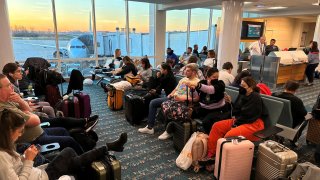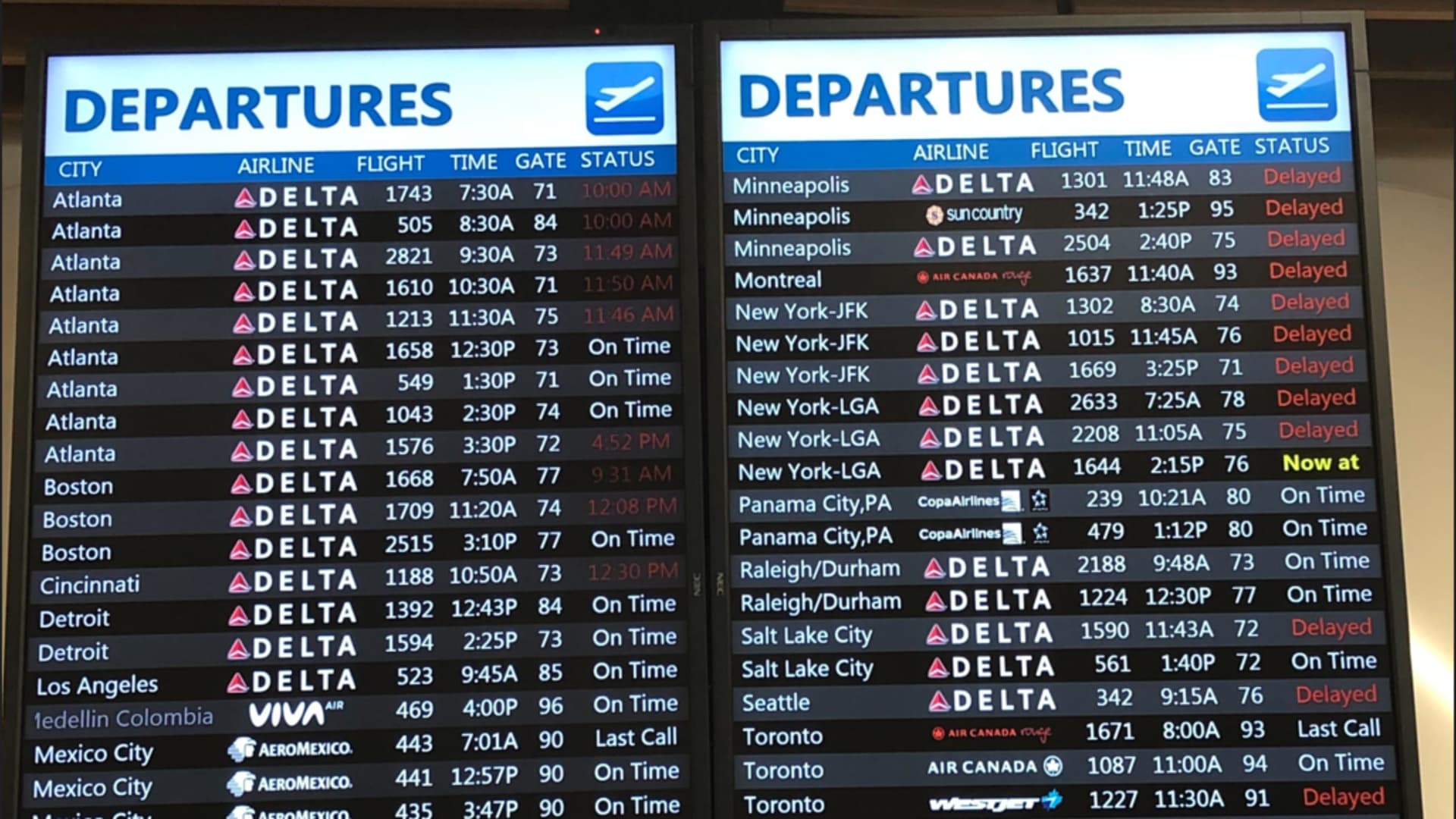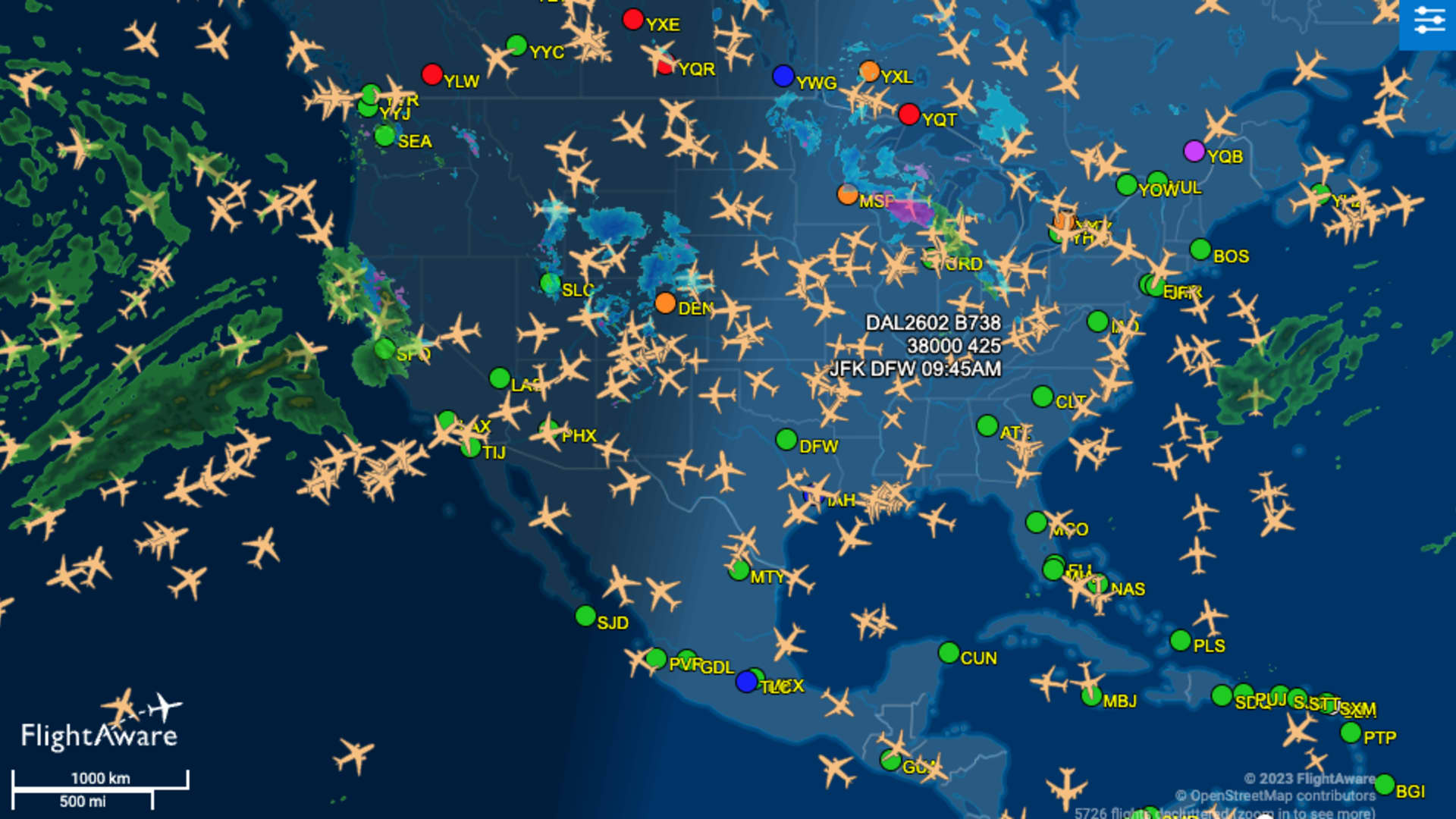
- The Federal Aviation Administration suffered an outage of the system that sends messages to pilots.
- The FAA ordered airlines to pause domestic departures but lifted it around 9 a.m. ET.
- "There is no evidence of a cyberattack at this point, but the President directed DOT to conduct a full investigation into the causes," the White House said.
Thousands of flights across the U.S. were delayed Wednesday after a Federal Aviation Administration pilot alert system failed overnight, prompting a nationwide halt to departures.
The FAA lifted the ground stop on departing flights around 9 a.m. ET as it worked to restore the Notice to Air Missions system, which is responsible for sending messages pilots, such as those about closed runways, hazards and other information.
Get top local stories in DFW delivered to you every morning. >Sign up for NBC DFW's News Headlines newsletter.
The FAA's outage was the second major air travel disruption in less than a month and drew bipartisan criticism. Winter storms derailed holiday travel in late December, prompting widespread cancellations and a crisis at Southwest Airlines after it buckled from all the schedule changes.
The NOTAM system failed at 3:28 p.m. on Tuesday, according to an FAA notice. The issue resulted from a corrupted system file, according to people familiar with the matter. The FAA thought the problem was resolved but it wasn't, the people said, so the agency later decided to reboot the system altogether and on Wednesday morning ordered a ground stop, which holds planes scheduled to depart. The NOTAM system does have a backup, but both the primary and backup systems had been fed by the bad data, according to a person familiar with the matter.
Money Report
Transportation Secretary Pete Buttigieg said he has "directed an after-action process to determine root causes and recommend next steps" of the unusual outage.
More than 9,500 U.S. flights were delayed as of 4:45 p.m. ET on Wednesday, according to flight tracker FlightAware. Residual delays from the ground stop worsened throughout the day due to backups.
Delta, United and Southwest had warned schedule adjustments were likely Wednesday. Airlines routinely slow down their schedules during disruptions so airports aren't overwhelmed by aircraft without a place to park.
For example, Delta flights destined for Hartsfield-Jackson Atlanta International Airport, Boston and New York's LaGuardia Airport, each were halted beyond the nationwide ground stop as were American Airlines flights scheduled for its Dallas/Fort Worth International Airport hub.
United told pilots it was reserving seats for commuting crews so they wouldn't have to rely on stand-by travel to reach assignments.

More than 1,300 U.S. flights were canceled on Wednesday. There were more than 23,000 flights scheduled to, from and within the U.S., according to aviation data firm Cirium.
There weren't any delayed U.S. flights scheduled for Thursday, according to FlightAware. Delta told CNBC that it expects "minimal residual impact, if any" on Thursday.
Several airlines waived change fees and fare differences for travelers affected by the outage.
The White House said Transportation Secretary Pete Buttigieg briefed President Joe Biden on the outage.
"There is no evidence of a cyberattack at this point, but the President directed DOT to conduct a full investigation into the causes," White House press secretary Karine Jean-Pierre said in a tweet.
Later Wednesday, Canada's air navigation agency said its similar notification system experienced a brief outage, but said no flights were delayed as a result. That system was restored by approximately 2:15 p.m. ET.

Wednesday's FAA issue added to concern from Washington from both Republicans and Democrats, particularly about technology that the complex U.S. air system, the world's busiest, relies on.
"As the Committee prepares for FAA reauthorization legislation, we will be looking into what caused this outage and how redundancy plays a role in preventing future outages," Sen. Maria Cantwell, D-Wash., chair of the Senate Commerce Committee, said in a statement Wednesday. "The public needs a resilient air transportation system.
Sara Nelson, president of the Association of Flight Attendants-CWA, which represents cabin crews at United, Spirit and more than a dozen other carriers, urged more funding for the FAA.
"We'll find out more about the root cause of the issue in the coming days — but what's clear is the need for robust and stable funding this year to bring our aviation system into the 21st century," she said. "We can't afford another government shutdown or funding bandaid."
Airlines and the Transportation Department last year frequently blamed one another for hundreds of flight disruptions that hit travelers, particularly in the spring and summer. Airline executives complained that insufficient air traffic control staffing was partly at fault for the disruptions, while Buttigieg blamed airlines for their own inadequate staffing.
The incident comes just weeks after bad weather during the busy holiday travel period prompted mass flight disruptions across the U.S. and days later, more than 15,000 Southwest flight cancellations after the carrier's internal systems were unable to process all the schedule changes.
Southwest proactively canceled some flights to avoid further disruptions on Wednesday. As of Wednesday at 5 p.m., more than 400 of its flights were canceled, or 10% of its schedule, while half, more than 1,900 were delayed, according to FlightAware.
More than a third of Delta's and United's mainline flights were delayed, while about 50% of American's were running late. Their regional partners also had significant delays.






